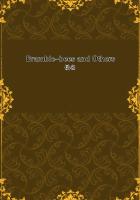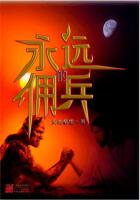John Fry had now six shillings a week of regular and permanent wage, besides all harvest and shearing money, as well as a cottage rent-free, and enough of garden-ground to rear pot-herbs for his wife and all his family. Now the wages appointed by our justices, at the time of sessions, were four-and-sixpence a week for summer, and a shilling less for the winter-time;and we could be fined, and perhaps imprisoned, for giving more than the sums so fixed. Therefore John Fry was looked upon as the richest man upon Exmoor, Imean of course among labourers, and there were many jokes about robbing him, as if he were the mint of the King; and Tom ***gus promised to try his hand, if he came across John on the highway, although he had ceased from business, and was seeking a Royal pardon.
Now is it according to human nature, or is it a thing contradictory (as I would fain believe)? But anyhow, there was, upon Exmoor, no more discontented man, no man more sure that he had not his worth, neither half so sore about it, than, or as, John Fry was. And one thing he did which I could not wholly (or indeed I may say, in any measure) reconcile with my sense of right, much as I laboured to do John justice, especially because of his roguery; and this was, that if we said too much, or accused him at all of laziness (which he must have known to be in him), he regularly turned round upon us, and quite compelled us to hold our tongues, by threatening to lay information against us for paying him too much wages!
Now I have not mentioned all this of John Fry, from any disrespect for his memory (which is green and honest amongst us), far less from any desire to hurt the feelings of his grandchildren; and I will do them the justice, once for all, to avow, thus publicly, that Ihave known a great many bigger rogues, and most of themselves in the number. But I have referred, with moderation, to this little flaw in a worthy character (or foible, as we call it, when a man is dead) for this reason only--that without it there was no explaining John's dealings with Jeremy Stickles.
Master Jeremy, being full of London and Norwich experience, fell into the error of supposing that we clods and yokels were the ******st of the ******, and could be cheated at his good pleasure. Now this is not so: when once we suspect that people have that idea of us, we indulge them in it to the top of their bent, and grieve that they should come out of it, as they do at last in amazement, with less money than before, and the laugh now set against them.
Ever since I had offended Jeremy, by threatening him (as before related) in case of his meddling with my affairs, he had more and more allied himself with ******-minded John, as he was pleased to call him.
John Fry was everything: it was 'run and fetch my horse, John'--'John, are my pistols primed well?'--'Iwant you in the stable, John, about something very particular', until except for the rudeness of it, I was longing to tell Master Stickles that he ought to pay John's wages. John for his part was not backward, but gave himself the most wonderful airs of secrecy and importance, till half the parish began to think that the affairs of the nation were in his hand, and he scorned the sight of a dungfork.
It was not likely that this should last; and being the only man in the parish with any knowledge of politics, I gave John Fry to understand that he must not presume to talk so freely, as if he were at least a constable, about the constitution; which could be no affair of his, and might bring us all into trouble. At this he only tossed his nose, as if he had been in London at least three times for my one; which vexed me so that Ipromised him the thick end of the plough-whip if even the name of a knight of the shire should pass his lips for a fortnight.
Now I did not suspect in my stupid noddle that John Fry would ever tell Jeremy Stickles about the sight at the Wizard's Slough and the man in the white nightcap;because John had sworn on the blade of his knife not to breathe a word to any soul, without my full permission.
However, it appears that John related, for a certain consideration, all that he had seen, and doubtless more which had accrued to it. Upon this Master Stickles was much astonished at Uncle Reuben's proceedings, having always accounted him a most loyal, keen, and wary subject.
All this I learned upon recovering Jeremy's good graces, which came to pass in no other way than by the saving of his life. Being bound to keep the strictest watch upon the seven rooks' nests, and yet not bearing to be idle and to waste my mother's stores, I contrived to keep my work entirely at the western corner of our farm, which was nearest to Glen Doone, and whence Icould easily run to a height commanding the view Icoveted.
One day Squire ***gus had dropped in upon us, just in time for dinner; and very soon he and King's messenger were as thick as need be. Tom had brought his beloved mare to show her off to Annie, and he mounted his pretty sweetheart upon her, after giving Winnie notice to be on her very best behaviour. The squire was in great spirits, having just accomplished a purchase of land which was worth ten times what he gave for it; and this he did by a merry trick upon old Sir Roger Bassett, who never supposed him to be in earnest, as not possessing the money. The whole thing was done on a bumper of claret in a tavern where they met; and the old knight having once pledged his word, no lawyers could hold him back from it. They could only say that Master ***gus, being attainted of felony, was not a capable grantee. 'I will soon cure that,' quoth Tom, 'my pardon has been ready for months and months, so soon as I care to sue it.'















